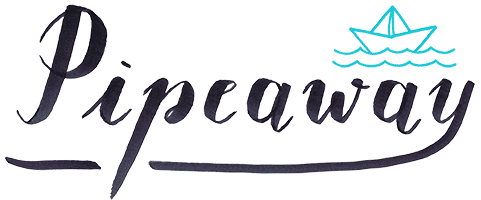This is the archived version of our free weekly newsletter. To start receiving it in your mailbox on the send-out day, join the newsletter list!
Hi from Igrane!
I’m in a small Croatian seaside village with just 400 residents and an unusual name. The literal translation to English would be ‘played’. Or ‘joué’, in French.
As I slowly adapt to my new hotel-based job, it’s surprising to see so many French tourists arriving at the Croatian Côte d’Azur (Azure Coast), with some of the best beaches in the Adriatic. Meeting francophone visitors is a great opportunity for reviving my rudimentary knowledge of the language, which I acquired mainly during my primary school years.
Hotel guests are kind. If I miss a certain word, they are always ready to jump in with a non-intrusive correction. By the end of this adventure, I might be speaking better French than I started with.
Language is alive and always evolving, but some essentials stay the same. The other day, some Turkish guests were proudly displaying their acquired knowledge of Croatian curse words, one of the richest collections of vulgarities in the entire world. Indeed, Croats can get rather creative when swearing.
But the sport of naming new terms has also become a discipline in creativity, not always without innuendos.
For instance, I noticed that the UK‘s daily Metro is quite keen to connect train travel with ambiguous words.
Back in March, they were writing about the barebackers on the London tube – the phenomenon of commuters who sit without any entertainment, and instead just – people-watch. Are you shocked by the fact that barebackers use the seat next to you? “Get your mind out of the gutter”, writes Metro. “It’s a perfectly innocent term.”
Then, in May, the same newspaper coined another “perfectly innocent term”, as they said. Now, the idea was to put a spotlight on people who deliberately sit in the aisle seat and leave the window seat empty, even as the train fills up. These commuters are, according to Metro’s creative namers, edgers.
Especially in the year when sexual predators in the UK are on the rise, naming supposedly new concepts with words that already have a meaning in the porn industry is, pardon my French, a linguistic bulls**t. And no, it’s not just a “perfectly innocent term”, as writers insist. It’s exactly the opposite, an intentional attention-seeking verbal game.
But do readers buy it? Do we really adopt barebackers and edgers as a standard class for train passengers?
By the way, do you remember the days (it was called – a century, back then), when we were all born in the ’60s, ’70s, ’80s, ’90s, and so on?
Well, some time, in the 1990s, it all changed. Thanks to Strauss-Howe‘s theory of recurring generational personas, and then some other media influencers, we started referring to people as being born in certain “generations”. The Silent Generation (1928-1945), Baby Boomers (1946-1964), Generation X (1965-1980), Millennials or Gen Y (1981-1996), Generation Z (1997-2012), Generation Alpha (2013-2025)…
Some of these generations have been determined post festum, but others are announced even while a significant portion of their representatives have not yet been born. Yet, we already “know” everything about them.
For instance, Mark McCrindle named Generation Alpha in 2010, three years before any alpha came to the world, but the author somehow already knew another, surely very different, yet compact generation would emerge in 2026.
I might talk like a total anti-scientist now, but this determination to label yet unborn people with certain traits sounds extremely random, as precise as a horoscope. And yet, we buy what they sell us.
It almost seems like throwing some spaghetti name on the wall and hoping it would stick. So, what if we make an experiment?
Could I just say the next generation would be from 2026 to 2031 (yes, so short, because time flies faster these days), and this one would be called not Generation Beta, but let’s say – Generation Qui? Pardon my French, again.
Raised by AI personal assistants who answer faster than their parents, Generation Qui? will be the generation of existential confusion. Hopefully, they’ll still be able to use some common language to communicate with each other.
While we are at the intersection of English and French, let me salute you this week with a recommendation of a train journey between Paris and London. Enjoy the ride, hopefully without awkward edgers and barebackers.
Have a playful/zaigrani week,
Ivan Kralj
Pipeaway.com
This is the archived version of our free weekly newsletter. To start receiving it in your mailbox on the send-out day, join the newsletter list!
Disclosure: This post may contain affiliate links, meaning if you click on them and make a purchase, Pipeaway may make a small commission, at no additional cost to you. Thank you for supporting our work!


